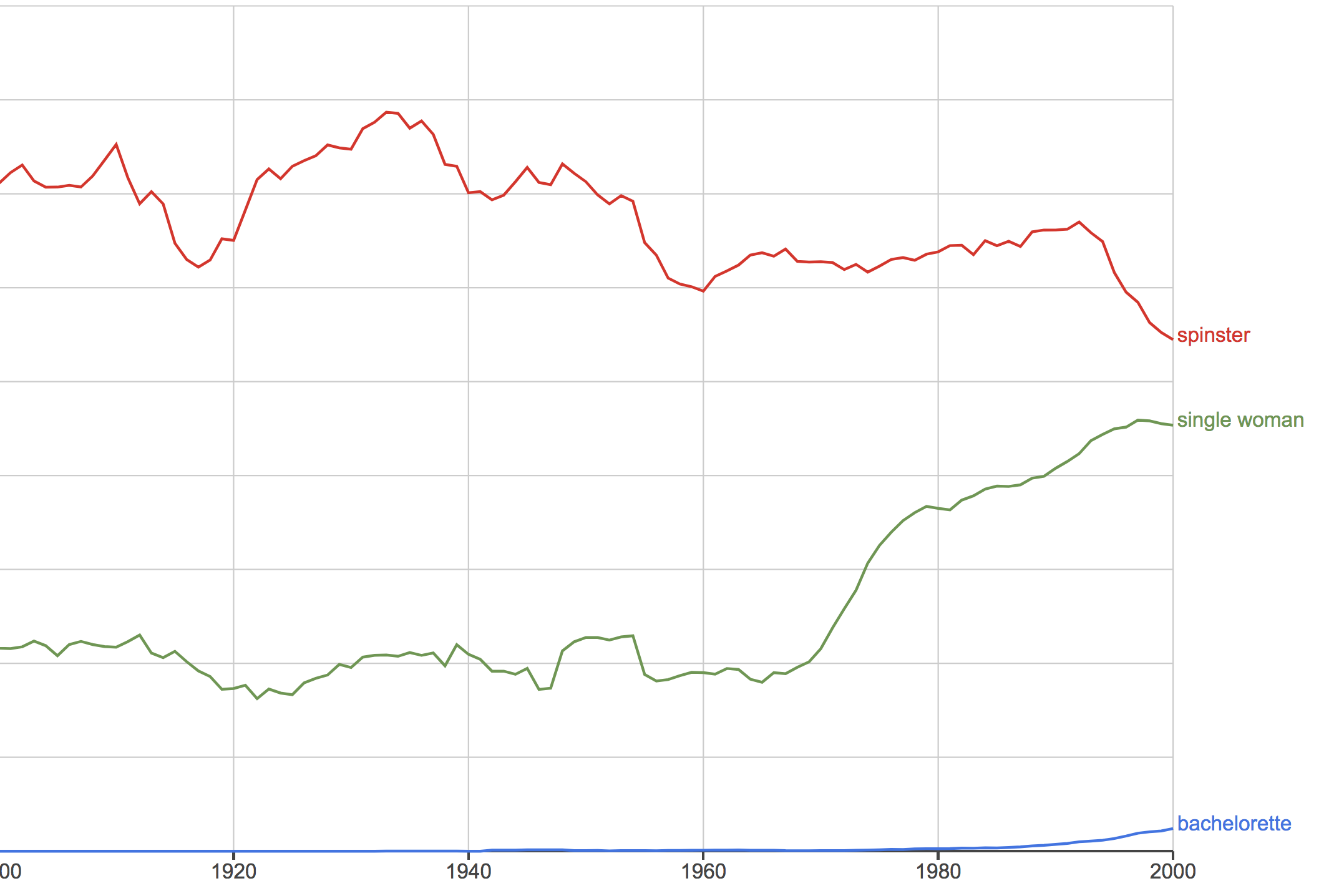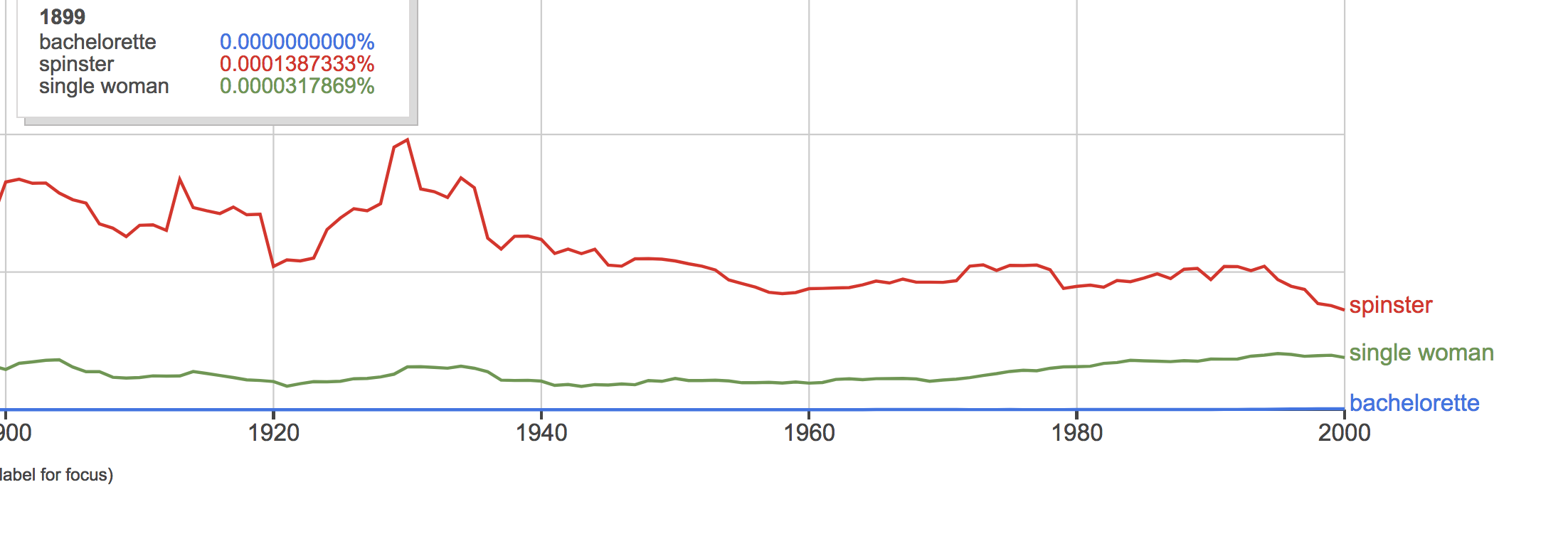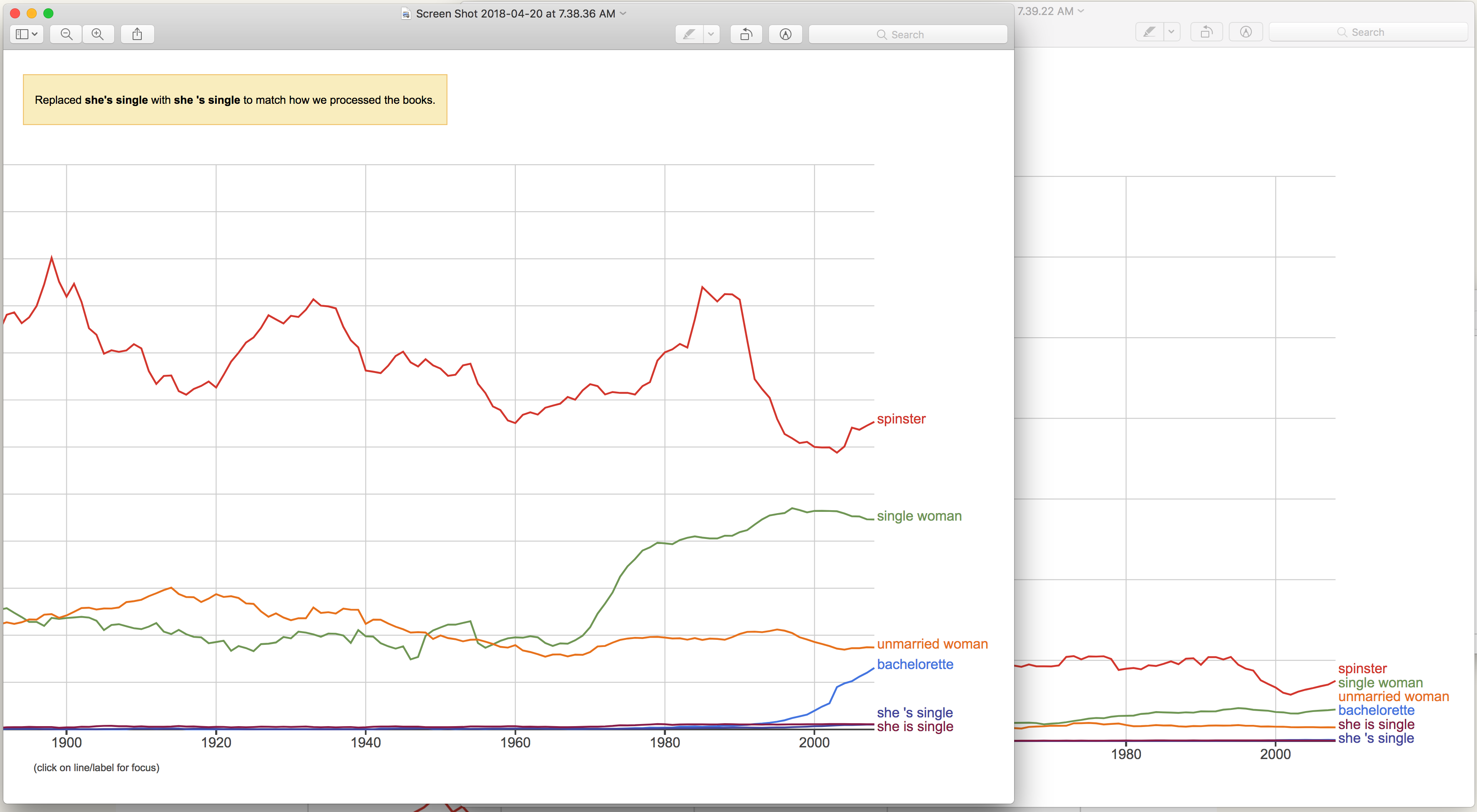Bachelorette meaning "unmarried woman" is an English expression with a French-sounding flavor which dates back to the late 19th century, but its usage has considerably increased from the early '90s.
In recent decades the expression seems to be more commonly used than other less appealing synonyms such as "spinster" or "unmarried woman".
In recent online articles, for instance, you may read:
"Gwyneth Paltrow's Bachelorette Getaway in Mexico" (from Enews)
"Bachelorette Becca Kufrin Reveals the One Celebrity She Wants to Compete for Her Heart" (from ETnews)
Questions:
Is bachelorette becoming the "preferred" neutral expression to refer to an "unmarried woman"? Is it commonly used both in BrE and AmE? What may have caused its increase in usage from the '90s, one century later than it was first coined?






